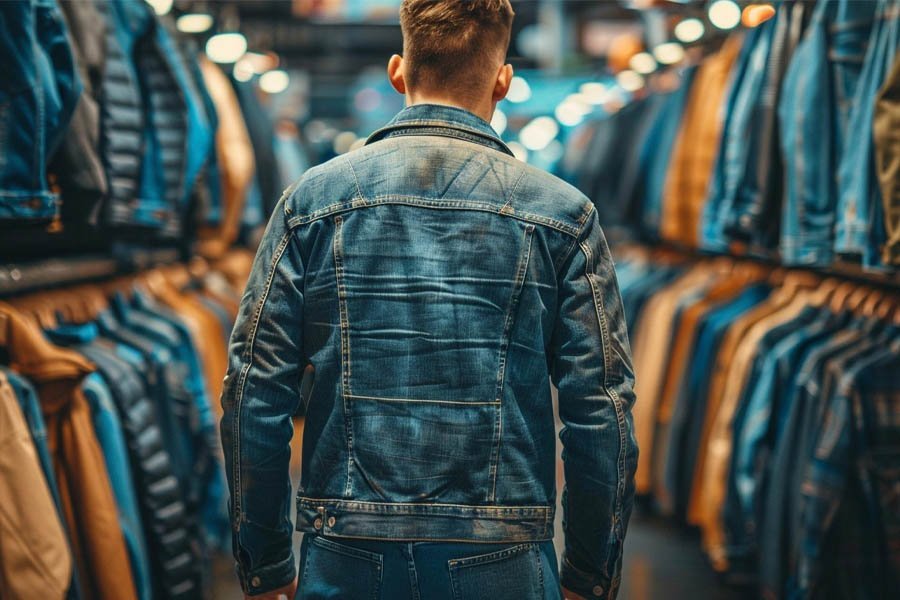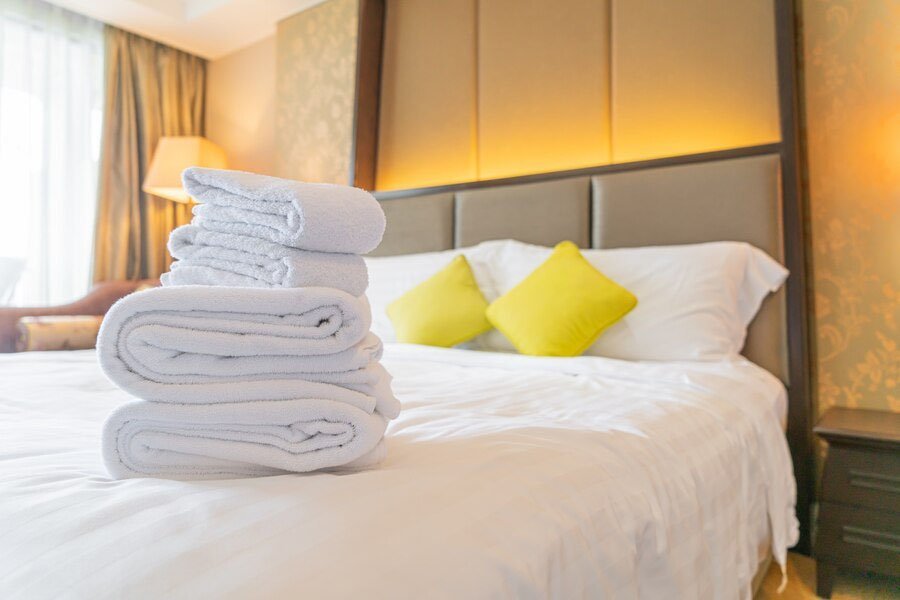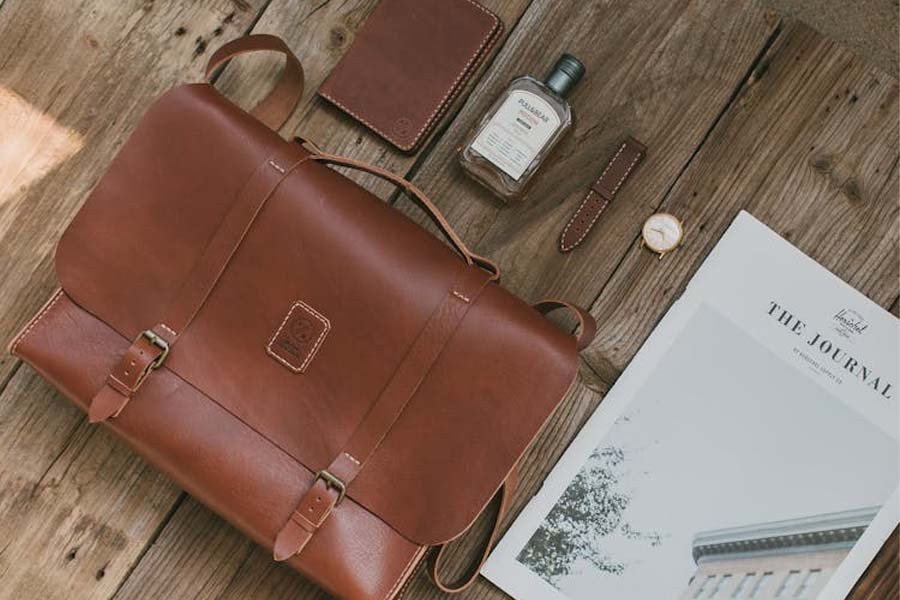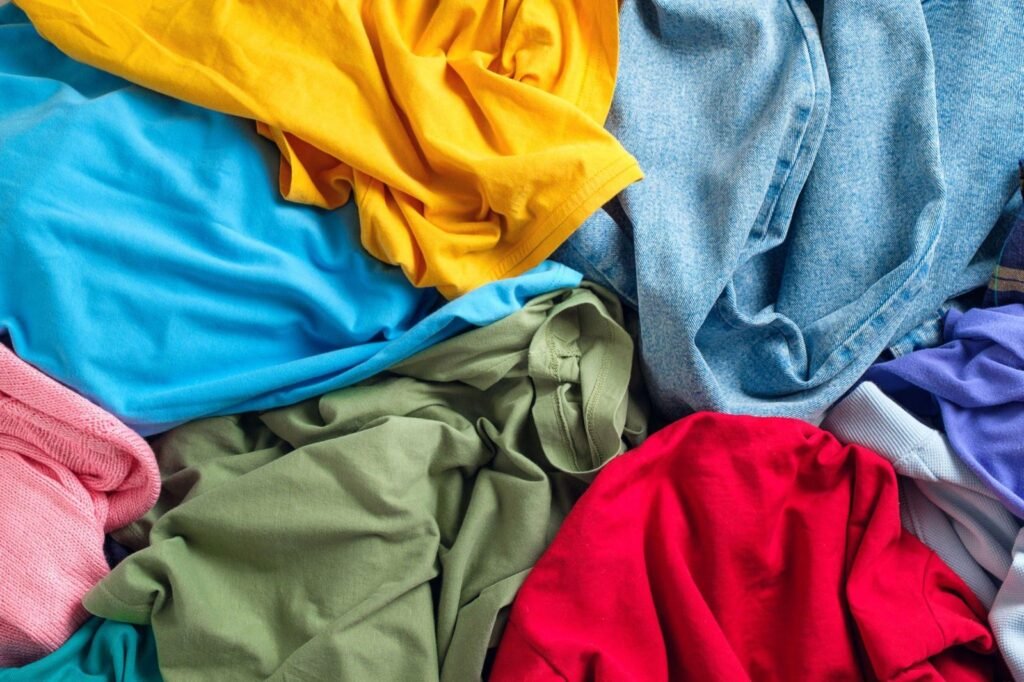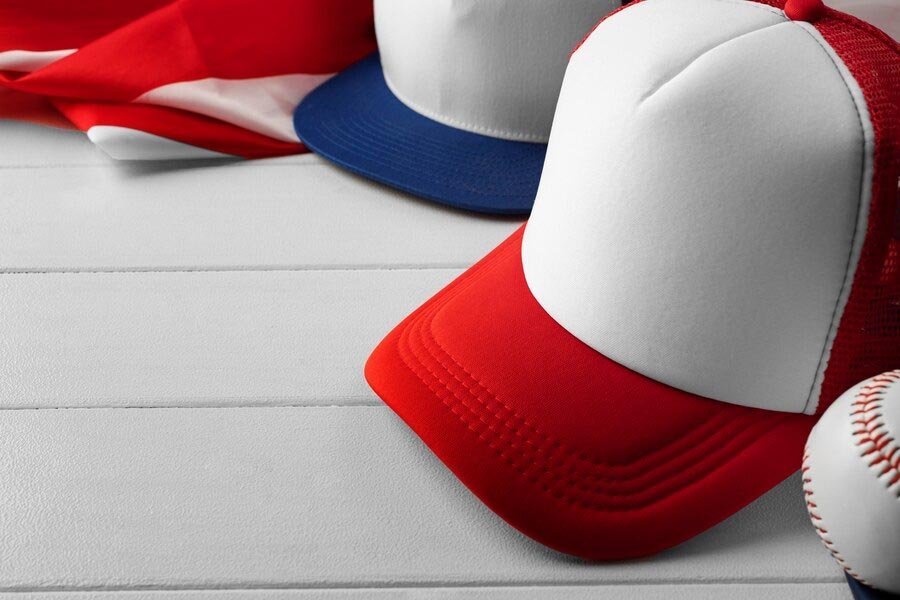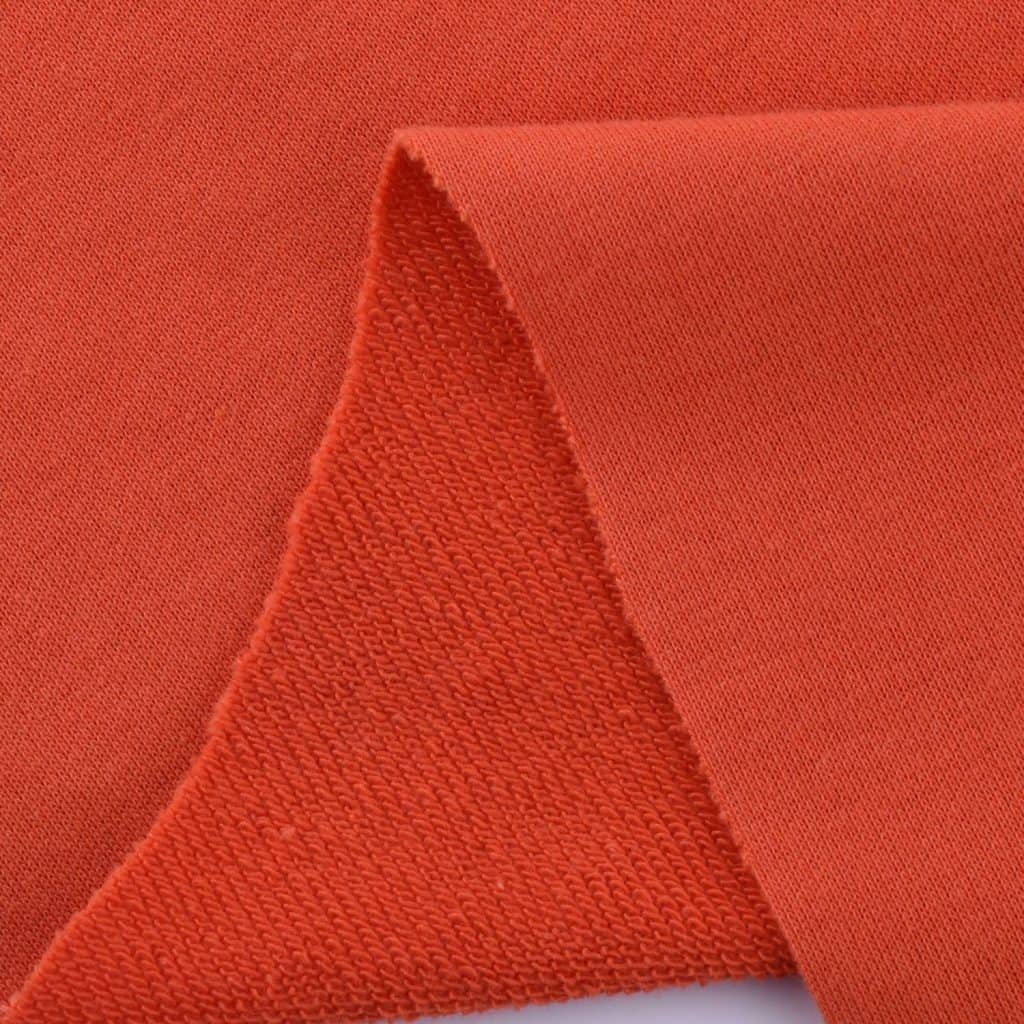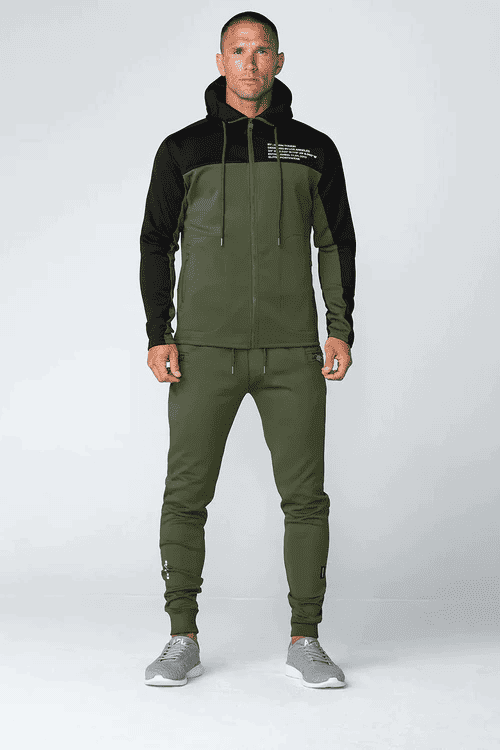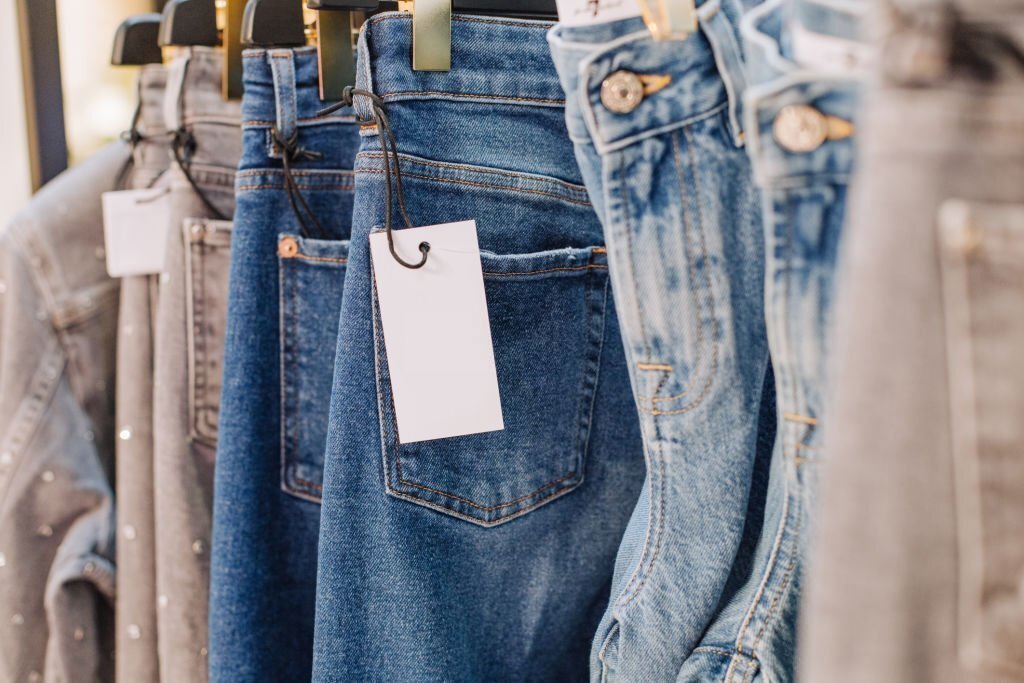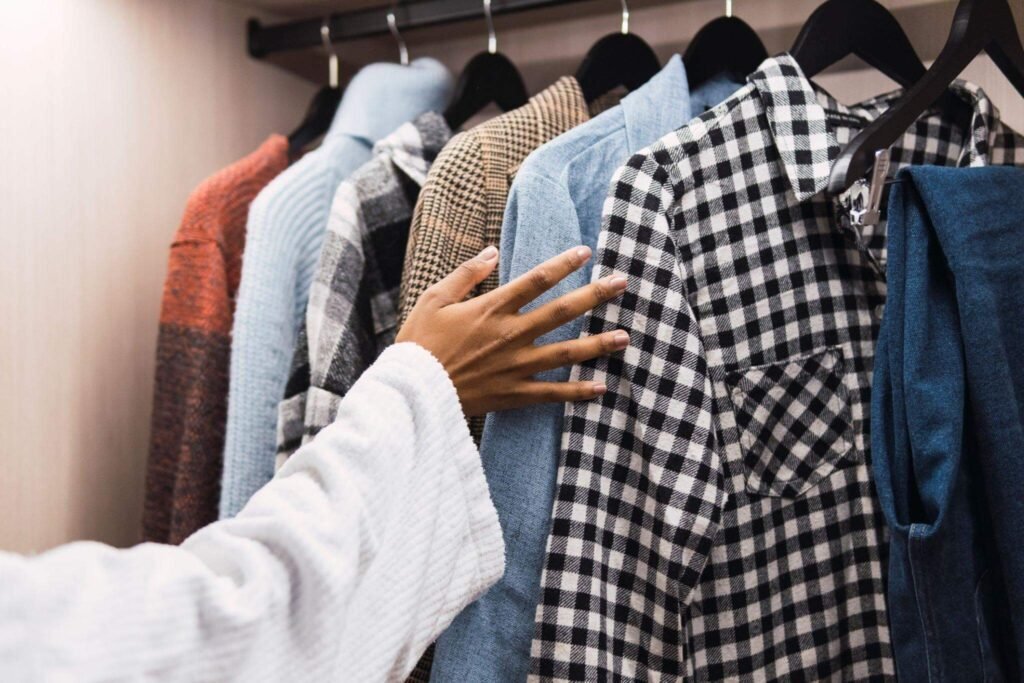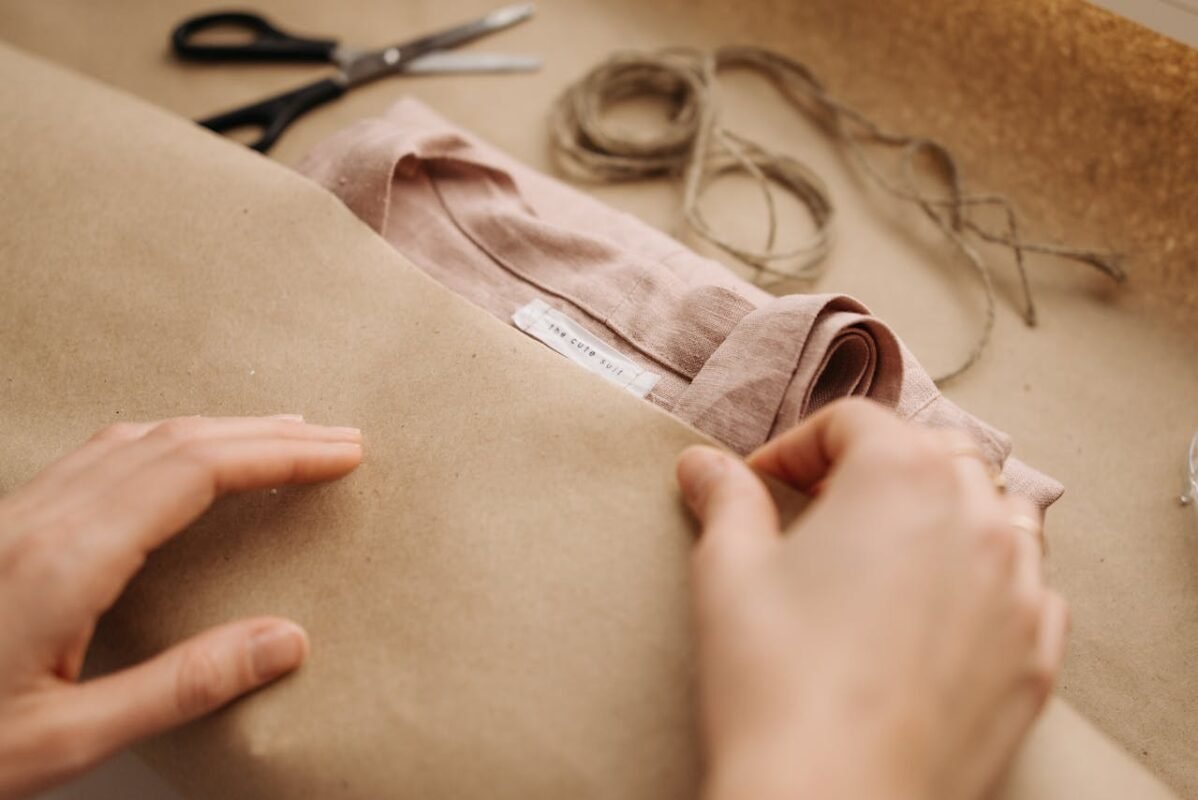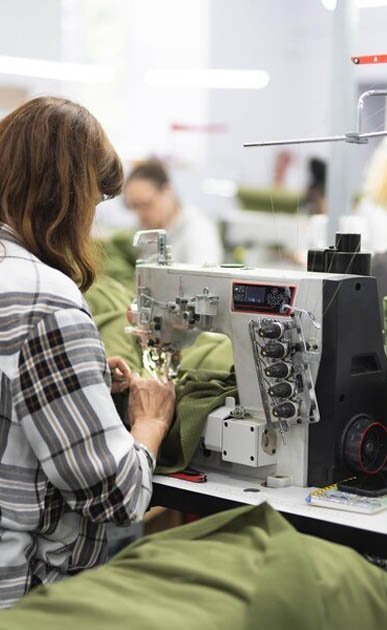
Choosing the right fabric is essential when it comes to creating high-quality and comfortable t-shirts. Whether you’re starting a t-shirt brand or searching for reliable suppliers, understanding the different fabric options available is a must.
In this guide, we’ll explore the best material for t-shirts, their pros and cons, as well as factors to consider while selecting the right material for your brand.
Top 3 T-shirt Fabrics to Use
The three most popular choices for t-shirt fabric are cotton, polyester, and blends.
Cotton offers comfort, and is well-known for its softness and breathability. Polyester provides durability and moisture wicking, which is great for sports apparel. Blends combine the best of both cotton and polyester, offering comfort and moisture control.
Each fabric has its advantages, allowing you to choose based on your preferences.
Cotton
Cotton stands as one of the most popular fabrics when it comes to crafting t-shirts, as well as all kinds of other garments. Cotton is known for its extraordinary softness and breathability.
Types of cotton
There are a few kinds of cotton that are used to make t-shirts. These are regular cotton, combed cotton, and ringspun cotton. Among these, regular cotton is a wallet-friendly choice, while combed and ringspun cotton are a little more expensive, but come with extra softness and durability.
Pros
- Supreme softness on your skin
- Offers excellent breathability, perfect for warmer climates
- A gentle touch for more sensitive skin, prevents discomfort
- Durable and low maintenance.
Cons
- A slight tendency to shrink if not given proper care, or not pre-shrunk
- Prone to wrinkling more than other fabrics
- Colors may fade over time.
Polyester
Polyester is a synthetic fabric and has surged in popularity within the t-shirt industry since it first appeared on the market. This is due to its remarkable moisture-wicking abilities and impressive durability, which makes it a sought-after choice.
Pros
- Outstanding moisture-wicking capability, which keeps you dry and comfortable.
- Wrinkle-resistant nature means a neat appearance, even on the go
- Exceptional durability guarantees a long-lasting garment that withstands wear and tear
- Vibrant color retention preserves the shirt’s visual appeal and quality over time.
Cons
- It’s less breathable than natural fibers, potentially causing warmth buildup
- Some individuals might experience discomfort due to reduced breathability or sensitivity to skin
- Gradual pilling can occur, although this is not inevitable.
Linen
Linen is a natural textile from the flax plant, and is perfect for keeping comfy in hot weather. Its lightweight and breathable qualities make it a popular option for summer clothing.
Pros
- Exceptional breathability for cool comfort in warm weather
- Efficient moisture absorption to keep the body dry
- Distinctive textured look that adds character to clothing and home textiles
- Eco-friendly choice as a biodegradable and sustainable material.
Cons
- Prone to wrinkling, which can be embraced or managed with ironing
- Initial coarseness against the skin which softens over time.
- Slightly less durable compared to some other fabrics, requiring careful handling and care.
4 Best Fabric Blends for T-Shirts
When it comes to choosing the perfect fabric blend for your favorite t-shirt, it’s essential to strike the right balance between comfort, durability, and style.
Each fabric blend possesses unique qualities that cater to various preferences and requirements. These blends are Rayon/Polyester, Cotton/Polyester/Spandex, Cotton/Spandex, and Polyester/Viscose. All of these blends are great t-shirt materials for any budding business.
Ultimately, the choice of fabric blend depends on what you want to offer as a t-shirt brand.
As you explore the options, consider the purpose of the t-shirt, and the level of comfort you desire. Whether you are looking for a versatile everyday option or a more specialized blend for specific activities, the world of fabric blends has something for everyone.
Here are four fabric blends that have gained popularity among t-shirt enthusiasts:
Rayon / Polyester Blend
Soft rayon meets durable polyester for lightweight elegance, resisting wrinkles and shrinking, perfect for varied styles.
Cotton / Polyester / Spandex Blend
Flexibility galore! Cotton’s comfort, polyester’s strength, and spandex’s stretch combined for an active fitted look with ease.
Cotton / Spandex Blend
Classic combo, soft cotton, and stretchy spandex create comfy, stylish wear for any occasion.
Polyester / Viscose Blend
Durable polyester, silky viscose and lightweight, luxurious tees for refined occasions.
Some Common Blend Ratios
Different fabric blend ratios yield different characteristics.
Common ratios include 60% cotton / 40% polyester, 50% polyester / 25% cotton / 25% viscose, and more. Understanding these ratios can help you choose the right blend for your t-shirts based on your preferences and needs.
How to Choose the Best T-shirt Fabrics?
Choosing the ideal fabric for your t-shirt brand is an important decision that impacts not only the comfort but also the overall quality and appearance of the garment. On top of that, your decision will affect the success of your business.
With an endless array of options available, understanding the key factors that define the best t-shirt fabrics can simplify the decision-making process. When choosing t-shirt fabrics, consider factors such as breathability and softness. The ability of a fabric to allow air circulation ensures comfort during wear, especially in warmer climates.
Equally important is the fabric’s durability, which determines the t-shirt’s longevity and resistance to wear and tear. A fabric that strikes a balance between being soft against the skin while retaining its shape after multiple washes is an indicator of high-quality material.
Moreover, understanding the intended use of the t-shirt, whether for casual wear or athletic activities, guides the selection towards fabrics that offer the desired level of flexibility and moisture-wicking properties.
Additionally, paying attention to fabric weight, weave, and texture empowers consumers to make informed decisions, ensuring the selected fabric aligns with their preferences.
Here’s what you need to consider when choosing the best t-shirt materials:
Comfort
Comfort is key! The fabric you choose should be good against your skin. Look for fabrics like cotton, which are soft and breathable, making your t-shirt comfy to wear throughout the day.
Cost
While we all love a good deal, remember the cost of fabric can affect its quality. Cheaper fabrics might not last long or feel as nice, so finding a balance between cost and quality is important, so that your business has the best chance to succeed.
Durability
Nobody wants a t-shirt that falls apart after a few washes. Opt for fabrics that are durable and can withstand regular wear and tear. Blends of cotton and polyester can offer both comfort and durability. Build a name as a brand that sells quality products.
Climate
Think about where you’ll be wearing your t-shirt. In hot climates, lightweight and breathable fabrics like linen or cotton are great choices. For cooler places, slightly thicker fabrics can provide more warmth.
Weight
This affects how your t-shirt hangs on your body. Lighter fabrics are perfect for a relaxed and breezy look, while heavier fabrics give a more structured appearance.
Choose Apprareify to Transform Premium Fabrics into High-Quality T-shirts!
For top-notch premium t-shirts, turn to Appereify. The best t-shirt manufacturer in China, we excel in crafting standout garments from quality fabrics. With our commitment to excellence, your t-shirt not only looks great but also meets high craftsmanship standards. Remember, choosing the right fabric is key to your brand’s success.
By knowing the fabric options and their traits, you can make choices that match your brand’s vision and audience’s preferences. Whether it’s comfort, durability, or style, t-shirt fabrics offer endless possibilities.
Find the right t-shirt material at Ludyway today.


